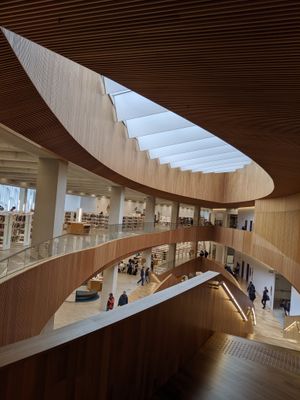I am in Dublin (Ireland) for a couple of days and was interested to see Fintan O’Toole writing about archives and genealogy in the Irish Times yesterday (behind a paywall).
He contrasts two views of genealogy, one that it is about tourism, one that it is about culture and the stories we tell ourselves about succession and origin. He associates each view with a state-sponsored initiative, the latter with the National Archives’ 1911 Census Online project, the former with the Irish Genealogy Project, coordinated by Irish Genealogy Ltd. I have no personal knowledge of either initiative.
About the Census Online project he says:
It is very important that you can do this without demanding a credit card number. The National Archives project is animated by a connection between public memory and public service, the idea of honouring a community’s search for origins.
On the National Archives site I was interested to see this note about James Connolly whom I mentioned the other day.
Read about trade unions and see the return for James Connolly and his family
One of the partners in in the initiative is Library and Archives Canada:
Library and Archives Canada has already mounted an online exhibition of documents in their custody relating to the Irish in Canada, accompanied by text from scholars in the field. The Shamrock and the Maple Leaf can be found at https://www.collectionscanada.ca/ireland/. [Census of Ireland – Partners in the Census online project]
Which raises interesting questions of continuity across the documents of a diaspora.
This is how the other initiative, the Irish Genealogy Project was described in 2005 in a Senate debate:
The primary goal of the project is to generate economic activity and employment throughout the island of Ireland by boosting roots tourism. The assumption underlying the strategy is that the availability of a world class, country-wide genealogy service, with the potential of pin-pointing the exact point of origin of emigrant families and supplying on-the-ground orientation in Ireland, will represent a powerful attraction for ethnically Irish visitors from America, Argentina, Australia, Canada, New Zealand and Britain. The intention is to attract these visitors to the various genealogical centres, which will provide a marketing or sales opportunity. The centres could provide an opportunity for individual genealogical researchers or authors to market their wares. The diaspora is variously estimated at between 50 million and 70 million people; however, the ties between the diaspora and Ireland may well be weakening. [Parliamentary Debates (Official Report – Unrevised) Seanad Éireann Thursday, 20 October 2005 – Page 7]
O’Toole is sceptical about ‘roots tourism’.
Here is his concluding paragraph:
The irony of these contrasting projects within the State sphere is that the one that came under a commercial rubric – IGL – looks like very bad value for the taxpayer, while the one that set out to achieve a cultural goal, Census Online, has been a model of the efficient and intelligent use of public resources. But even if this were not the case, there is still an overwhelming argument for genealogical information to be freely available online as a public cultural resource. Genealogy is history made personal – it connects people through their individual genetic past to the past of the communities they inhabit. And, in a society that is struggling with interculturalism, the State should encourage genealogy as an exercise in political hygiene. It has a nasty habit of surprising people and making them realise that they are not quite who the think they are. There are few more civilising experiences.
Incidentally, I noted O’Toole’s wonderful remarks about public libraries in these pages a couple of years ago.



